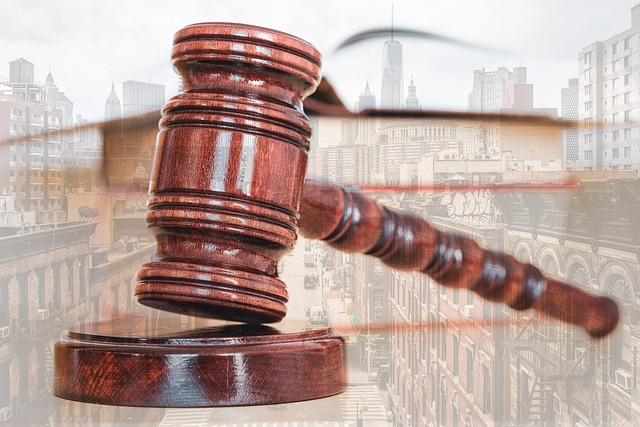Plea bargains and trials are contrasting approaches in criminal law for fraudulent financial cases. Plea bargains offer swift resolution, reduced sentences, and public accountability while trials involve a full legal battle with potential harsher penalties. Both methods have unique advantages, with plea bargains streamlining justice and trials providing robust defenses. Strategic decisions balance efficiency, accountability, and legal resources, crucial in navigating complex white-collar fraud defense.
In the intricate landscape of finance, fraudulent practices pose a persistent threat, undermining trust and stability. This article delves into the intricacies of financial fraud, exploring its various forms and the legal strategies employed to combat it. We dissect the nuances of plea bargains versus trials in criminal law, examining their implications on fraud cases. Understanding these dynamics is crucial for both professionals seeking to deter fraudulent activities and individuals aiming to protect themselves from economic pitfalls.
- Understanding Fraudulent Financial Practices: Definition & Examples
- Plea Bargain vs. Trial: Implications for Fraud Cases
- Legal Strategies to Combat and Deter Financial Fraud
Understanding Fraudulent Financial Practices: Definition & Examples

Fraudulent financial practices refer to a range of illegal activities aimed at manipulating or deceiving individuals and institutions for personal gain. These practices can take various forms, from investment scams and embezzlement to falsifying accounting records and insurance fraud. Understanding what constitutes fraudulent behavior is crucial in order to identify and prevent such acts, which often have severe economic and social consequences.
In the context of criminal law, the distinction between a plea bargain and trial plays a significant role in cases involving fraudulent financial practices. A plea bargain allows accused individuals to avoid indictment and potentially secures a complete dismissal of all charges in exchange for admitting guilt or agreeing to specific conditions. This process can be particularly relevant when victims are seeking swift resolution while also ensuring that perpetrators face consequences for their actions. Conversely, a trial involves presenting evidence and arguments before a judge or jury to determine guilt, which may result in harsher penalties but offers a more transparent and public accountability.
Plea Bargain vs. Trial: Implications for Fraud Cases

In criminal law, the choice between a plea bargain and a trial is pivotal, especially in high-stakes cases involving fraudulent financial practices. A plea bargain offers a negotiated settlement where the defendant pleads guilty to a lesser charge or agrees to cooperate with prosecutors in exchange for reduced sentencing or charges dropped entirely. This option can be attractive for defendants facing potentially severe consequences, aiming to secure a more predictable outcome and avoid the rigorous process of a trial. The strategy often proves effective given the unprecedented track record of successful plea bargains in achieving extraordinary results, ensuring both justice and a more controlled legal journey.
Conversely, going to trial provides an opportunity for a full presentation of evidence and arguments before a judge or jury. While it carries inherent risks, including the possibility of harsher sentences, it offers the chance for defendants to mount a robust defense, challenge the prosecution’s case, and clear their name publicly. The choice between these paths significantly influences the trajectory of fraud cases, with each option presenting unique advantages and disadvantages that can shape the ultimate legal and financial outcomes.
Legal Strategies to Combat and Deter Financial Fraud

In the legal landscape of financial fraud, a strategic approach is essential to combat and deter these complex crimes. One of the primary tools in the prosecutor’s arsenal is the negotiation of plea bargains. A plea bargain involves the accused pleading guilty to a lesser charge or accepting a reduced sentence in exchange for providing substantial assistance to the prosecution. This strategy not only streamlines the legal process but also ensures that the focus remains on recovering losses and holding perpetrators accountable. It allows for more efficient resource allocation, as cases can be resolved faster, leaving more time and capacity for investigating other fraudulent schemes.
When considering the Plea Bargain Vs Trial in Criminal Law, the decision involves a delicate balance between securing justice and managing legal resources effectively. In the context of white-collar defense, where financial fraud often occurs within complex business structures, plea bargains can be particularly effective. They enable prosecutors to gather critical evidence and insights into the respective business operations, aiding in unraveling intricate fraud networks. While jury trials offer a robust platform for upholding the rights of the accused, they are resource-intensive and may not always be practical or efficient in cases involving substantial financial crimes.
In tackling fraudulent financial practices, understanding the nuances of plea bargain vs. trial within criminal law is key. As demonstrated, plea bargains offer a more efficient route to justice, while trials provide a platform for transparency and complete truth-seeking. Balancing these approaches, along with robust legal strategies aimed at deterrence, is essential in mitigating financial fraud. By leveraging the right tools and insights, we can enhance our defenses against deceptive practices, fostering integrity within our financial systems.






